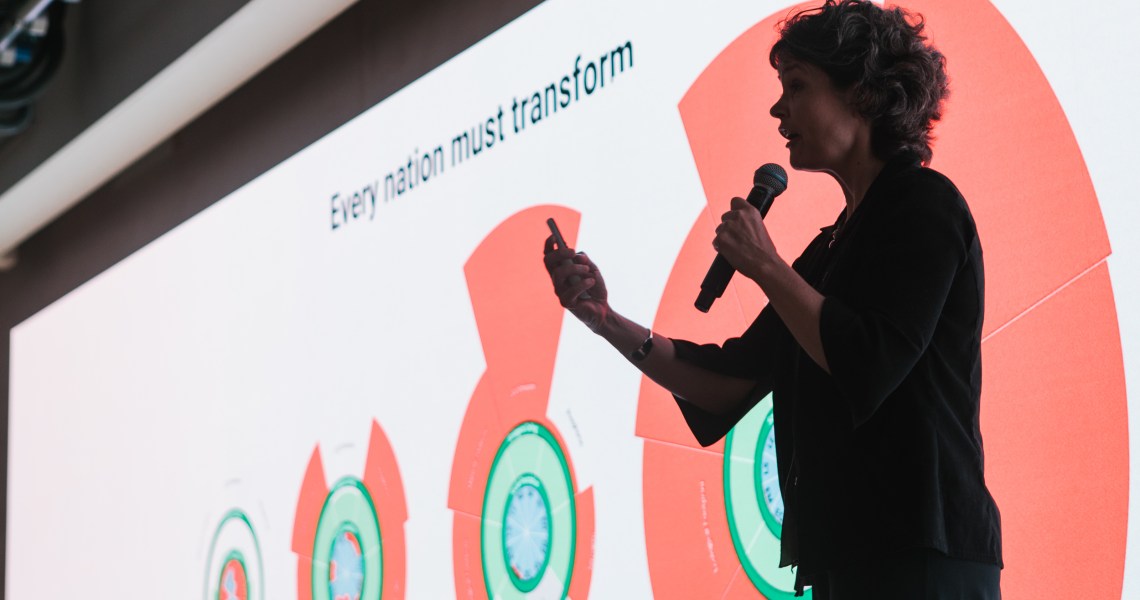The British Fashion Council’s Institute of Positive Fashion Forum (IPF) Forum called on brands to make more diverse hires, collaborate in solving similar supply chain challenges and focus on innovation.
In its second year, the IPF Forum on Thursday brought together over 280 U.K. fashion leaders from Asos, Burberry, Stella McCartney and Amazon Fashion. Unlike the Copenhagen Global Fashion Summit, the event included hack discussions, where brand representatives worked together in blast sessions on burning issues. Key themes from the event focused on the BFC’s first industry-wide Diversity and Inclusion leadership report, released on Friday, as well as the need for collaboration and innovation to bring about change.
Encouraging diverse hiring policies
The BFC’s D&I report highlights the need for brands to change their hiring policies and the way they’re approaching “culture fit” requirements. The report showed that, at the board, executive and direct report levels of U.K. fashion brands, representation for women is below 40% and for ethnic minorities is less than 10%. With diversity previously treated as an afterthought in British business, the report shows that some brands like Burberry, Ganni and Lululemon are taking actionable steps to change their hiring practices. Similarly to American companies, brands have been influenced by the racial reckoning that George Floyd’s murder stirred in 2020.
Jamie Gill, chair of the BFC’s D&I steering committee and CEO at Roksanda, said, “The last few years have provided a critical moment of self-reflection for the fashion industry, as businesses have begun to understand the importance of diverse thought and representation across all levels of their organizations.” The report will be used as a code of best practices for U.K. fashion brands going forward.
Mandating positive competition and collaboration
One of the main issues that came up at IPF was that many brands, especially those that are small and medium-sized businesses, are struggling to fulfill manufacturer requirements for more sustainable practices, like leveraging circular farms or factories. Many companies talking about the need for brands to partner to achieve various results, and the aspect of cross-brand collaboration to bring down costs, specifically, was a hot topic.
Francois Souchet, global head of sustainability and impact at PR agency BPCM, said, “We see this positive competition to be more sustainable happening more between companies like Kering and LVMH, and between brands like Adidas and Nike. Other takeaways from today include collaboration across the supply chain, where the goal is to have a more equal partnership with suppliers in order to deliver against targets.” BPCM’s clients include Calvin Klein, Longchamp and Tata Harper.
Although competing has been the standard for many businesses in the space, increased transparency and voluntary disclosure have meant that companies are more aware of which elements of the supply chain they share, leading to better practices. “If you really want to unlock massive change, then the supply chain is shared across everyone — materials are not necessarily highly competitive, in most of the cases. To be sustainable, then you need everyone to invest in [the supply chain] and actually share the cost of that transition,” said Souchet.
Ad position: web_incontent_pos1
Some of the better practices discussed included providing education around the benefits of more sustainable production at the manufacturer level, shouldering shared costs through shared distribution and leveraging strength in numbers when addressing local governments about the need for policies and legislation around circularity.
Fueling change with innovation across the board
Innovation was another big topic of the day. That included growing new fabrics, embracing regenerative farming and entering web3. As part of the event, the BFC launched its 2022 Future of Fashion Innovation Showcase, featuring startup companies at the edge of innovation addressing sustainability challenges across fashion. Participants included color solutions company Radiant Matter, chemical circularity company DyeRecycle, repairs app Sojo and wardrobe digitizing app Save Your Wardrobe. The demand for new startups that are working to address these challenges has resulted in a new and fertile playing field for U.K. businesses.
Eva Kruse, svp of impact and global engagement at Pangaia, encouraged brands to use the innovations that Pangaia is making. “What is critical is how these innovations are brought to scale. Small- and medium-sized businesses, which there are a lot of in the U.K. fashion industry, can easily take in some of those innovations, even before they are hugely scalable,” she said of Pangaia’s material innovations like its cotton standard.
The opportunity for testing and iteration is not something that has come easily to more traditional businesses. But with the growing number of small and medium-sized businesses and DTC brands in the U.K., the region shows promise as an arena for scaling sustainability innovations.




